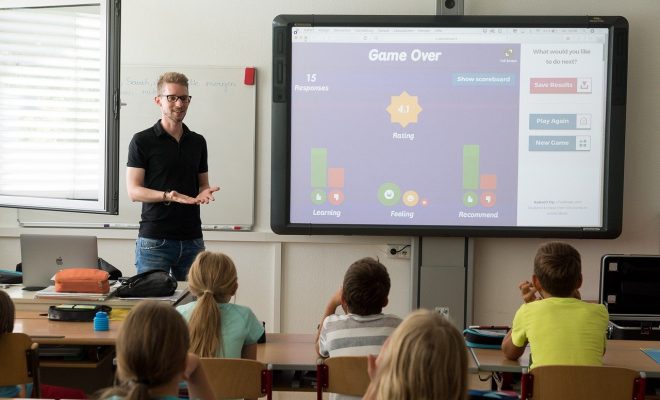Grading Obama on Education Reform

Several weeks ago, I discussed President Obama’s education record in my introduction to education class. In particular, we talked about P-20 education, which begins in preschool and ends with graduate school. Predictably, the debate became quite contentious. Most of us had to agree to disagree on the most central points of educational politics. Partly in response to this debate, though, I decided to write an assessment of Obama’s education record in several areas of P-20 education issuing a letter grade (A-F) to make my position on his record abundantly clear.
Of course, Obama has preached the importance of investing in education throughout his professional career. “Countries that out-educate us today,” he once said, “will out-compete us tomorrow.” The core of his plans for education is to provide all students with the same opportunity to reach high levels of proficiency. Whereas students have not had access to the same educational pathway across the board, lower achievement outcomes readily accepted among disadvantaged students, Obama has promoted education equity and held all children to the same high standards.
In a bid to achieve educational equality, Obama has implemented a number of education reform initiatives as follows:
Race to the Top. In education reform, Obama started his presidency with a proverbial bang. The American Recovery and Reinvestment Act of 2009 (ARRA) allocated $5 billion for early childhood programs, and $77 billion for reforms to support elementary and secondary education. ARRA also funds Obama’s education reform magnum opus, Race to the Top, which aims to sustain successful teachers and principals in school districts across the nation. Race to the Top, funded by ARRA, is also responsible for the adoption of common K-12 teaching standards. Per the competitive component of this ‘race’, states receive points for fulfilling certain criteria, such as performance-based standards for teachers and principals, showing fidelity to nationwide standards, encouraging charter schools, and the like. At least, this is how it works in theory. Critics of Race to the Top argue that its emphasis on high-stakes testing is untrustworthy – and I am inclined to agree. Generally speaking, though, the
Race to the Top initiative has raised standards for learning and emphasized college and career readiness. Each year, the program gives even more in federal funding to states that prepare plans for reforming their student offerings. The program has allocated more than $4 billion among 19 states for developing plans to improve learning standards, teacher effectiveness, and struggling schools. The states granted the funds represent 42 percent of all low-income students in the nation, too, making the initiative an effective way to close the achievement gap and equalize funding in areas where schools may struggle based on their geographical location.
Promise Neighborhoods. In 2010, President Obama another important educational initiative known as the Promise Neighborhood Grants The Promise Neighborhoods Grants supported cradle-to-career services intended to improve the educational attainment and healthy development of children. The program aims to provide students in Promise Neighborhoods with access to effective schools and well-built networks of parental and community support, preparing them to receive an exceptional education and effectively transition to college and a career. Patterned after Geoffrey Canada’s Harlem Children’s Zone, Promise Neighborhoods are a “promising” reinvention of an existing educational innovation.
80% High School Graduation Rate. The latest data on high school graduation shows that the U.S. Education system has an 80% graduation rate.(for the 2010–2011 school year). Collectively, though, America is far from a plateau when it comes to graduation rates. When it comes to our knowledge and potential to learn more, too, we have plenty of room for growth. As the K-12 landscape continues to evolve to meet the needs of a growingly diverse group of learners, educators must be ready to adjust and help students reach their full potentials, starting with the basic right of an earned high school diploma.
STEM Education Reform. The President was not only vocal about the need for stronger programs in science, technology, engineering and math but he actually put some money behind his words. His 2014 budget includes $3.1 billion in investments in federal STEM programs – an increase of nearly 7 percent over the budget from two years ago. Of that $3.1 billion, too, Obama has designated some $80 million to recruit 100,000 qualified educators. He has also earmarked another $35 million to launch a pilot STEM Master Teacher Corps. The rest of the money will go to supporting undergraduate STEM education programs and investment in breakthrough research on best teaching practices for STEM subjects, helping to prepare today’s students for the worldwide workforce.
When Obama assumed the presidency, a nasty set of problems confronted him in K-12 education. Given the nature and sheer number of challenges, his administration has done a great deal to foster positive change and progress with education reforms like Race to the Top and Promise Neighborhoods. Overall, therefore, I think the president deserves an A, which reflects his solid education reform record as Commander-in-Chief. I am sure many will disagree with this assessment, but it is my opinion in light of the above mentioned policies. I am looking forward to reading your comments and I encourage you to use this article as a springboard for discussion.
Click here to read all our posts concerning the Achievement Gap.






